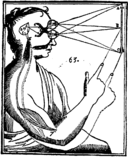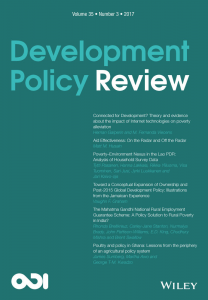The influence of science on morality
 Recently, I’ve come across several mentions of the role of science in influencing morality. Most of these discussions allude to the following question: to what extent do scientific findings influence people’s concepts of right and wrong or even good and evil? The discussion is generally about the role the natural sciences play in these determinations, but I often wonder what sociologists’ role is in shaping concepts of morality. I do not have an answer to the above question and will likely pose more questions than I will provide answers in the following paragraphs, but I believe this is both an interesting and important question for social scientists to consider. For all the debates about the importance of objectivity in scientific work and all the measures put in place to insure that scientists’ opinions remain on the periphery (if not entirely absent from) their work, there seems to be less debate about the role of morality.
Recently, I’ve come across several mentions of the role of science in influencing morality. Most of these discussions allude to the following question: to what extent do scientific findings influence people’s concepts of right and wrong or even good and evil? The discussion is generally about the role the natural sciences play in these determinations, but I often wonder what sociologists’ role is in shaping concepts of morality. I do not have an answer to the above question and will likely pose more questions than I will provide answers in the following paragraphs, but I believe this is both an interesting and important question for social scientists to consider. For all the debates about the importance of objectivity in scientific work and all the measures put in place to insure that scientists’ opinions remain on the periphery (if not entirely absent from) their work, there seems to be less debate about the role of morality.
In a recent NPR broadcast on Science and Morality (see below), one of the participants summarized this issue quite succinctly: “Science plays an important and vital role in our lives…when it comes to morality, people say science is neutral…but that’s not quite true.” This is, in part, because we often confound objectivity and moral neutrality, which are really not one and the same. For instance, even if researchers take great care to be objective in their work, all science is political. Studies of evolution are increasingly under attack from the religious right who claim that this undermines the belief in creationism – they accuse scientists of destroying a religious moral fiber by investigating such topics. Thus, no matter how objective a study may be, its ability to influence public morality or to at least cause debates about where morality does and should come from (science or religion, in this case) is independent of objectivity.
Another participant in the NPR broadcast reminds us that, “a better understanding of human nature and the human brain can affect moral judgments.” In other words, simply by virtue of explaining the world and furthering knowledge, we may actually be inadvertently affecting people’s morals and the way they see the world. This can be important and is sometimes the goal – for instance, by explaining inequality (which is a kind of social evil), we hope that it might dissipate (thus creating a better society). We may change the way people see right and wrong in the process, but, we hope, for the betterment of society. Still, we advance a particular moral stance, despite whatever measures have been taken to ensure the objectivity of the project. Even the most self-reflexive of social scientists still has a moral position, an ethical orientation toward the world and our work almost always have the goal of explaining a phenomenon and perhaps fixing a social ill. Ultimately, it is important to note that moral positions influence our work and also change the morality of those who come into contact with it. I obviously cannot know to what extent social scientists change the morality of the general public, but it is certainly an interesting question for investigation.
Can Science Shape Human Values? And Should It? Audio from NPR
Morality, in The Blackwell Dictionary of Modern Social Thought





1530-2415/asset/SPSSI_logo_small.jpg?v=1&s=703d32c0889a30426e5264b94ce9ad387c90c2e0)
1475-682X/asset/akdkey.jpg?v=1&s=eef6c6a27a6d15977bc8f9cc0c7bc7fbe54a32de)